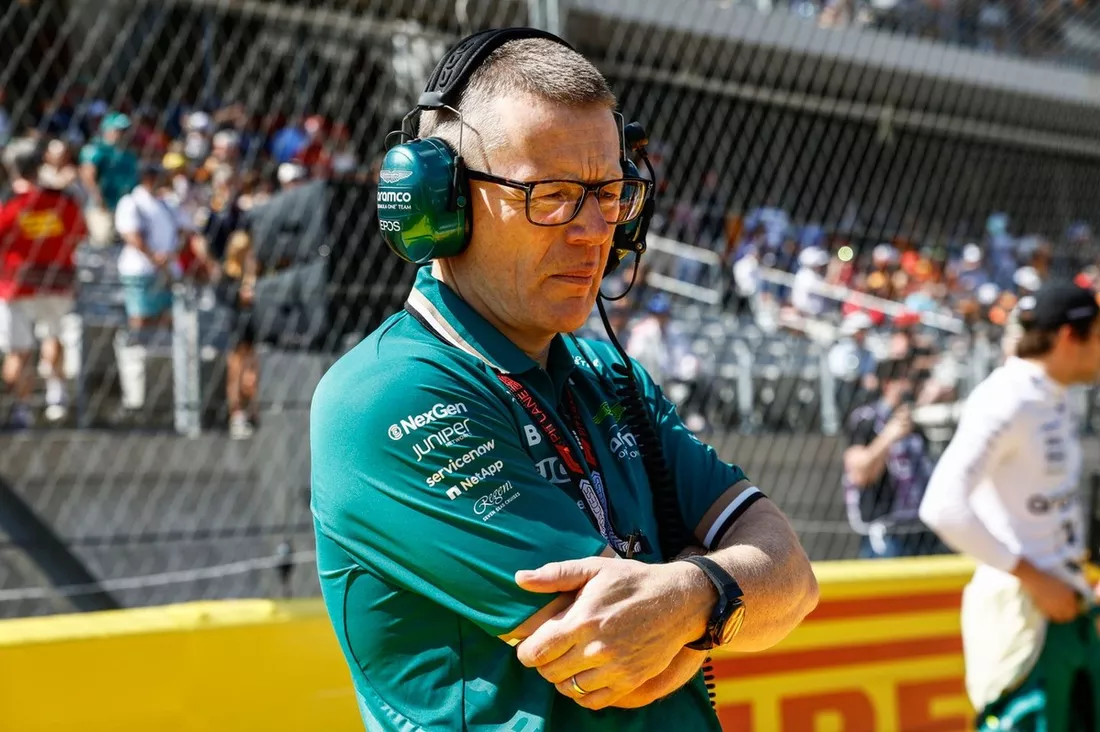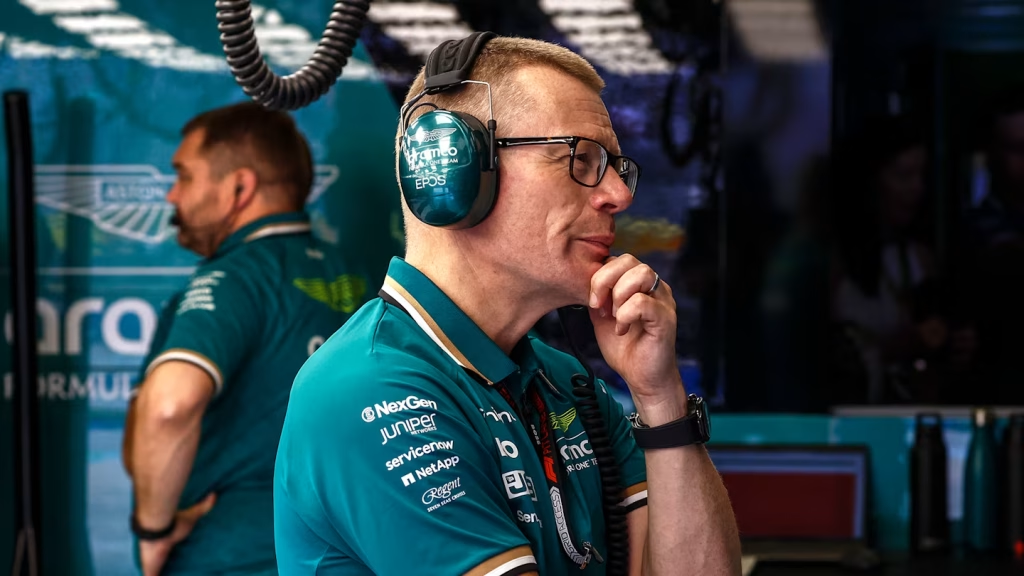Andy Cowell, born February 12, 1969, in Blackpool, England, is a name revered in the world of Formula 1 for his unparalleled expertise in engine design and team leadership. As the Group CEO and Team Principal of Aston Martin Aramco F1 Team since 2024, Cowell brings a legacy of innovation that transformed Mercedes into a dominant force during F1’s turbo-hybrid era. A Fellow of both the Institution of Mechanical Engineers (IMechE) and the Royal Academy of Engineering, Cowell’s career is marked by his pivotal role in developing the most efficient racing engines in F1 history, powering Mercedes to 12 world titles between 2014 and 2020. From his early days at Cosworth to his current mission of turning Aston Martin into a championship contender, Cowell’s journey is a testament to technical brilliance, strategic vision, and a lifelong passion for motorsport.

Early life
Cowell was born in Blackpool, a coastal town in Lancashire, England, where his passion for motorsport took root in childhood. Growing up, he was captivated by the spectacle of Formula 1, avidly watching races on television and nurturing what he described as a “childhood addiction to motorsport.” His father, an amateur racer, played a significant role in shaping his interests, with Cowell assisting him in sprints and hill climbs. These early experiences, tinkering with cars and immersing himself in the competitive atmosphere of motorsport, ignited a dream to work in F1. While details of his family background or schooling remain private, it’s clear that his formative years were defined by a blend of technical curiosity and a love for racing, steering him toward a career in engineering. His hands-on involvement with his father’s racing endeavors provided practical insights that would later complement his academic pursuits.
Education and early career at Cosworth (1991–2000)
Cowell’s path to Formula 1 began with a degree in Mechanical Engineering, which he completed in 1991 at an undisclosed university. His academic journey included a formative year on the Reynard Scholarship Scheme, a program that offered practical engineering experience and solidified his ambition to work in motorsport. Straight out of university, Cowell joined Cosworth Racing Ltd. on their graduate scheme, a prestigious entry point into F1 engine development. At Cosworth, he worked across various technical departments, gaining a comprehensive understanding of engine design and development. His specialization in Formula 1 engines soon emerged, and by 1998, he was leading the engineering project group responsible for the top end of the innovative CK engine. This engine powered Stewart Grand Prix to a historic victory at the 1999 European Grand Prix, marking a significant early achievement in Cowell’s career.
In 2000, Cowell briefly joined BMW Motorsport, where he steered the engineering group tasked with designing the 2001 BMW-Williams engine. This stint, though short, showcased his ability to lead high-stakes projects for top-tier teams. He returned to Cosworth in 2001 as Principal Engineer for F1 design and development, managing new engine projects in 2001 and 2003. These early roles honed his technical expertise and project management skills, preparing him for the challenges of F1’s increasingly complex engineering landscape.
Mercedes-Ilmor and the hybrid era (2004–2020)
In 2004, Cowell joined Mercedes-Ilmor (later Mercedes AMG High Performance Powertrains, or HPP) as Principal Engineer for the FQ V10 engine project, marking the start of a 16-year tenure that would redefine F1 engine technology. He described his first day as a mix of privilege and apprehension, aware of the talented team he was joining and eager to contribute. By 2006, he was Chief Engineer for Ilmor’s V8 engine project, and he later took on technical leadership for all engine projects, including the pioneering KERS (Kinetic Energy Recovery System) hybrid system, which debuted in 2009. The KERS project earned Mercedes the prestigious Dewar Trophy from the Royal Automobile Club, recognizing its engineering excellence.
From July 2008 to January 2013, Cowell served as Engineering and Programme Director for Mercedes-Benz HPP, overseeing all engine and powertrain projects while shaping the engineering group’s strategy. His leadership during this period laid the groundwork for the revolutionary PU106A V6 Hybrid Power Unit, introduced in 2014. In January 2013, Cowell was promoted to Managing Director of Mercedes AMG HPP, succeeding Thomas Fuhr. Under his stewardship, the PU106A became the gold standard in F1’s turbo-hybrid era, powering the Mercedes F1 W05 Hybrid to the 2014 Drivers’ and Constructors’ Championships. The power unit achieved a thermal efficiency exceeding 50%—a record for racing engines—making it the most efficient in F1 history.
Cowell’s tenure as Managing Director saw Mercedes dominate F1, securing both Drivers’ and Constructors’ Championships from 2014 to 2020, totaling 12 titles in six years. His innovations, including the “Party Mode” qualifying boost, gave Mercedes a competitive edge, while his hands-on leadership inspired a culture of excellence at HPP’s Brixworth facility. The 2014 PU106A also earned a second Dewar Trophy, and Cowell himself received the IMechE James Clayton Award in 2013 for his contributions to engine design, including the V10, V8, and V6 hybrid systems. His work not only powered Mercedes but also supplied engines to customer teams, amplifying his impact across the grid.
Reflecting on the hybrid era’s challenges, Cowell noted the shift from traditional internal combustion engines to efficiency-driven hybrids, with strict fuel and RPM limits. His team’s meticulous calibration ensured Mercedes’ power unit was reliable and dominant, overcoming initial fears that it might not survive the first six races of 2014. Cowell also championed diversity in motorsport, advocating for outreach to schools to broaden the sport’s talent pool, and praised Lewis Hamilton’s transformative impact on the team.
In June 2020, after nearly two decades with Mercedes, Cowell stepped down as Managing Director to seek new challenges, handing the reins to Hywel Thomas. His departure marked the end of an era, but his legacy as the architect of Mercedes’ engine dominance endures.
Aston Martin (2024–present)
After a four-year hiatus from F1, Cowell returned in July 2024, joining Aston Martin as Group CEO, a move orchestrated by team owner Lawrence Stroll to prepare for the 2026 engine and chassis regulation changes. Aston Martin’s transition to a full works team with Honda engines in 2026 demanded a leader of Cowell’s caliber, and his appointment signaled ambitious intent. In January 2025, Cowell also assumed the role of Team Principal, replacing Mike Krack, who was reassigned as Chief Trackside Officer. This leadership reshuffle, alongside high-profile hires like Adrian Newey (Managing Technical Partner) and Enrico Cardile (Chief Technical Officer), underscored Aston Martin’s push to become a championship contender.
Cowell’s initial months as CEO were spent assessing Aston Martin’s operations, staff, and performance, leveraging his experience to streamline engineering, aerodynamics, and performance departments. His dual role as CEO and Team Principal gives him unprecedented oversight, aligning technical development with on-track strategy. Aston Martin’s recruitment of Fernando Alonso in 2023, combined with Honda’s arrival, positions the team for a potential leap forward, and Cowell’s track record suggests he is well-equipped to deliver. His focus on the 2026 regulations, which emphasize sustainable fuels and enhanced hybrid systems, aligns with his expertise in efficiency-driven engineering.
Cowell is steering Aston Martin through a critical phase, building infrastructure and fostering a winning culture. Posts on X reflect optimism about his role, with sentiments highlighting his potential to transform Aston Martin into a “championship force” by 2026. While the team’s 2023 and 2024 seasons saw inconsistent results—six podiums in 2023 but a drop-off thereafter—Cowell’s arrival is seen as a catalyst for sustained progress.

